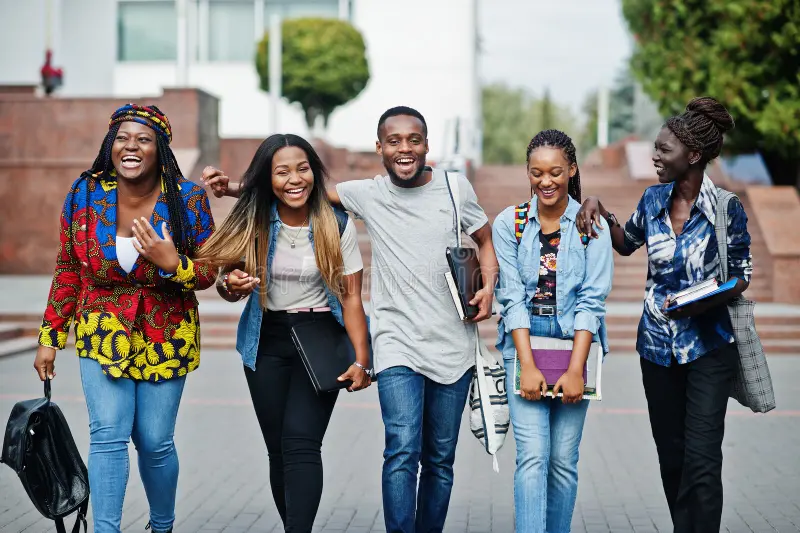Top 10 Most Asked F1 Visa Interview Questions in Nigeria

Key Highlights
- Be prepared to explain why the U.S. is the best fit for your academic and career goals.
- Choose a university based on its specific strengths in your field of study.
- Link your program to your long-term career goals and emphasize plans to return to Nigeria.
- Show clear financial backing for your education, including sponsor and documentation.
- Have a plan for managing cultural differences and homesickness while studying.
- Anticipate challenges as an international student and demonstrate your readiness to handle them.
- Provide a clear financial plan for supporting yourself beyond the first year of study.
- Reaffirm your intention to return to Nigeria after graduation, even if you don’t get a job in the U.S.
- Be prepared to discuss your previous travel experiences, if any, and how they’ll help in the U.S.
- Explain how you plan to use your U.S. education to benefit Nigeria upon your return.
If you’re a student from Nigeria getting ready for your F1 visa interview, you’re probably feeling both excited and a little nervous understandably so! The visa interview is a critical step in your journey to study in the U.S., and it can sometimes feel like a big hurdle. However, with solid preparation, you can walk in confident and ready to impress.
This blog will guide you through the top 10 F1 visa interview questions specifically designed for Nigerian students, complete with practical tips and sample answers to help you succeed.
Top 10 F1 Visa Interview Questions in Nigeria
1. Why Do You Want to Study in the United States Instead of Nigeria?
Tips: This is your chance to explain why studying in the U.S. is better for you than studying in Nigeria. You need to show you’ve done your homework on why the U.S. is the best fit for your academic and career goals. Be honest but also strategic—mention things like better resources, advanced research opportunities, or international exposure.
Sample Answer 1: "I want to study in the U.S. because it offers the best learning experience for my field of study, Computer Science. The U.S. is home to leading tech companies and research institutions that are on the cutting edge of innovation. By studying there, I will gain access to state-of-the-art technology and a diverse learning environment, which will give me a strong foundation for my future career back in Nigeria."
Sample Answer 2: "The United States provides an unmatched opportunity to study Business Administration. In Nigeria, the business curriculum is good, but the U.S. provides more comprehensive programs with access to global networks, internships, and professors with real-world business experience. This will give me the skills to bring international best practices back to Nigeria and contribute to its growing economy."
2. Why Did You Choose This Specific University?
Tips: The visa officer wants to know that you picked a university for solid reasons, not just randomly. Mention specific things like the university's reputation in your field, faculty, or research programs. Show you’ve done your homework.
Sample Answer 1: "I chose University of Washington because of its strong program in Biology. The university has cutting-edge labs and is known for its research in molecular biology, which aligns with my career goal of becoming a research scientist. I also found that their faculty is highly regarded, and they offer internships that would be valuable to my growth."
Sample Answer 2: "I selected Post University because of its excellent MBA program. The university is known for its leadership in business education and its strong alumni network, which will help me build connections with top companies. They also offer a range of electives focused on entrepreneurship, which is my career goal."
3. What Are Your Long-Term Career Goals, and How Will This Program Help You Achieve Them?
Tips: Here, they want to know if you’re serious about your future. It’s a chance to connect your program with your long-term goals. Make it clear that you plan to return to Nigeria and contribute to your country after gaining your education.* Sample Answer 1: "My long-term goal is to become a clinical psychologist and open my own mental health clinic in Nigeria. The psychology program at MIT will provide me with the specialized training and practical experience I need. Mental health services are still growing in Nigeria, and I believe that the knowledge I gain in the U.S. will help me make a real difference back home."
Sample Answer 2: "I want to become a financial analyst and help Nigerian businesses grow by providing financial guidance. The Accounting program at Yale University is one of the top in the U.S. and offers both theoretical knowledge and hands-on training, which will help me achieve my goal of becoming a top consultant when I return to Nigeria."
4. Who Is Sponsoring Your Education, and How Will They Support You Financially?
Tips: This question checks if you’ve got the funds to pay for your studies. You’ll need to show that you or your sponsor have the means to cover tuition, living expenses, and other costs. Be ready with documents and straightforward answers.
Sample Answer 1: "My parents are sponsoring my education. They have saved for this over the years and have a solid financial plan. I’ve provided their bank statements and other necessary documents as proof. They’re committed to supporting me through my entire program."
Sample Answer 2: "My uncle is sponsoring my education. He is a successful businessman, and we have already prepared all the necessary financial documentation, including bank statements and affidavits of support. He has set aside enough funds to cover both my tuition and living expenses for the duration of my studies."
5. How Do You Plan to Manage Cultural Differences and Homesickness While Studying in the U.S.?
Tips: The interviewer wants to know if you’re ready to adapt to a new culture and handle the challenges of living away from home. Show them you’ve thought about how you’ll cope, whether it’s staying in touch with family, making friends, or joining student groups.
Sample Answer 1: "I expect there will be cultural differences, but I’m excited about the experience. I’ve already been in touch with the Nigerian student association at the university, which will help me feel at home. I plan to stay connected with my family regularly through video calls, and I’m open to learning from the diverse culture in the U.S."
Sample Answer 2: "I understand that living in a new country will have its challenges, but I’m looking forward to immersing myself in the culture. I plan to join student organizations and make new friends to ease the transition. Plus, I’ll stay connected with my family back in Nigeria through phone calls and social media."
6. What Challenges Do You Think You Will Face as an International Student, and How Will You Handle Them?
Tips: This is a reality check question. They want to see if you’ve thought about the difficulties you might face and whether you have the determination to overcome them. Be honest, but also show confidence.
Sample Answer 1: "I expect adjusting to the academic workload might be a challenge at first, but I’m ready for it. I plan to use the university’s resources like tutoring services and time management workshops to stay on track. I’m also prepared for any cultural differences and will keep an open mind while learning to adapt."
Sample Answer 2: "As an international student, one challenge I anticipate is homesickness. To handle this, I plan to stay in regular contact with my family and friends back home. I’ll also get involved in campus activities and use the support services available for international students, like counseling and mentoring programs."
7. How Do You Plan to Finance Your Education Beyond the First Year?
Tips: They want to make sure you won’t run out of money halfway through your studies. You need to have a clear plan for how you’ll support yourself after the first year, whether it’s through personal savings, a scholarship, or a sponsor.
Sample Answer 1: "My parents have already set aside the funds to cover all four years of my education. I’ve provided financial statements to show that we’ve budgeted for both tuition and living expenses for the entire duration of my program."
Sample Answer 2: "I’ve been awarded a partial scholarship that will cover part of my expenses for the first year. My family has saved enough to cover the remaining costs, and I also plan to apply for other scholarships available through the university for my subsequent years."
8. What Will You Do If You Do Not Get a Job in the U.S. After Graduation?
Tips: This is one of those questions where the interviewer wants to ensure you have no intention of staying in the U.S. permanently. Your goal is to show you’re focused on returning to Nigeria after your studies.
Sample Answer 1: "My primary goal is to return to Nigeria after my studies, whether or not I get a job in the U.S. I’m eager to use the knowledge and skills I acquire in the U.S. to contribute to the growing technology industry in Nigeria. I have no plans to remain in the U.S. permanently."
Sample Answer 2: "My focus is on returning to Nigeria after I complete my degree. Even if I don’t find a job in the U.S., I’m confident that the skills I’ll gain will allow me to make a meaningful impact in Nigeria’s business sector. I plan to use my MBA to start my own consulting firm."
9. Have You Traveled Outside of Nigeria Before? If Yes, What Was Your Experience Like?
Tips: This is a pretty straightforward question about your travel history. If you’ve traveled abroad, they want to know how you handled it. If not, focus on your excitement about experiencing a new country.
Sample Answer 1: "Yes, I traveled to Ghana for a conference, and it was a great experience. It helped me learn how to adapt to a new environment and manage things like cultural differences and being away from home. It also made me more confident about traveling to the U.S. for my studies."
Sample Answer 2: "No, I haven’t traveled outside of Nigeria before, but I’m excited about the opportunity to study in the U.S. I’ve spoken with friends and family members who have studied abroad, and they’ve given me advice on how to adjust to life in a new country."
10. How Do You Plan to Use Your U.S. Education Back in Nigeria?
Tips: This question is about your future plans and whether you’re committed to returning to Nigeria after your studies. Be clear about how your education will benefit you and Nigeria.
Sample Answer 1: "After completing my degree in Computer Science, I plan to return to Nigeria and work in the tech industry. There’s a growing need for skilled professionals in software development, and I want to use what I learn in the U.S. to contribute to Nigeria’s growing tech ecosystem."
Sample Answer 2: "My goal is to return to Nigeria after completing my degree in Business Administration and start my own business. I want to contribute to the Nigerian economy by bringing innovative business ideas that I learn from my time in the U.S. back to my home country."
Conclusion
Preparing for your F1 visa interview can feel overwhelming, but with these top 10 questions and answers in your toolkit, you’re already ahead of the game. Remember to stay calm, be yourself, and show that you’ve carefully planned your studies in the U.S. and how they’ll benefit you and Nigeria in the long run. With the right preparation, you’ll walk out of that interview feeling like a winner! Best of luck!
Have Questions About This Topic?
Join our community to get personalized advice and share experiences with others going through similar visa processes.



